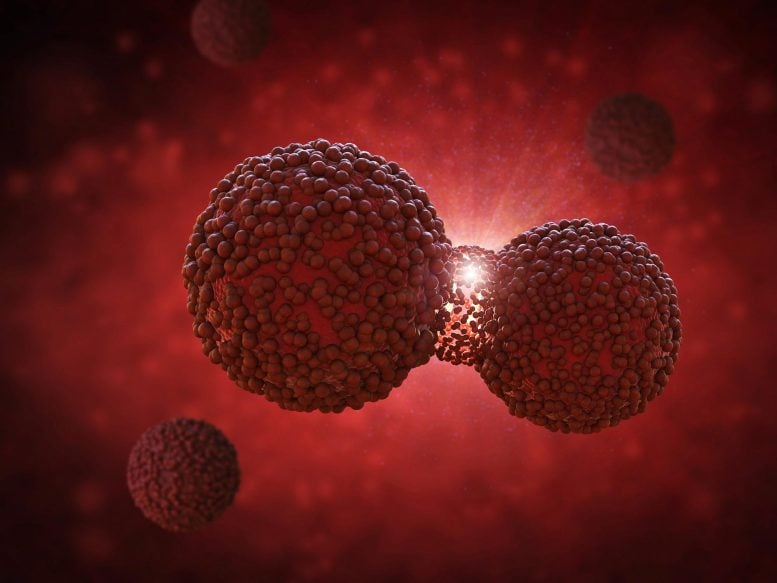
Scientists have discovered that alterations in the tumor DNA, such as changes in order, structure, and copy numbers, can cause some skin cancers to resist treatment and spread to other body parts. The findings could help develop new treatments that increase the life expectancy of patients with advanced cancer.
Researchers have discovered the reason why some skin cancers cease to respond to treatment toward the end of the patient’s life.
A comprehensive study of 14 individuals who passed away from untreatable melanoma has uncovered that alterations in the arrangement, composition, and duplication of tumor DNA can lead to resistance to treatment in some skin cancers. These modifications also shed light on how melanoma can proliferate to other areas of the body.
The research, published in the journal Cancer Discovery, was led by scientists and clinicians at the Francis Crick Institute, University College London (UCL), and The Royal Marsden. It is part of the Cancer Research UK-funded PEACE study, which is shedding light on the final stages of life with cancer by analyzing tumor samples taken from autopsies with informed consent. Additional funding for this research was provided by Melanoma Research Alliance, The Royal Marsden Cancer Charity, and Rosetrees Trust.
Many people with advanced cancers had previous treatment which wasn’t successful because the cancer found ways to overcome it. Scientists hope that this new information about melanoma’s resistance to current treatments will ultimately deliver new treatments which give people with advanced cancer more time with their loved ones.
The findings have been welcomed by relatives of people who consented to take part in the PEACE study, to help others who are facing the emotional and physical pain of an advanced cancer diagnosis.
Dave Sims (35), originally from Bristol, lost his twin brother Mark to melanoma when he was just 28. Mark, a doctor living in London, was first diagnosed with melanoma at the age of 15. Despite having the tumor removed, it returned 12 years later and doctors discovered that it had spread to other parts of his body. When his cancer returned, Mark was looked after by the Melanoma Unit at The Royal Marsden.
Before his death in January 2017, Mark gave his consent to take part in the PEACE study. He had learned about melanoma during his medical training, and wanted to do as much as he could before he died to support research and raise awareness of the disease.
Dave said: “Mark always thought about others more than himself. He wanted to do everything he possibly could to ensure that no one else ever has to go through the same thing that he did. He became an ambassador for Cancer Research UK, and established a fund that has raised over £330,000 for research. But one of the bravest things he did before he died was to sign up for the PEACE study, allowing scientists to see how the drugs he was treated with affected his cancer. Not a day goes by when I don’t feel emotional about his decision to sign up for the PEACE study. Even though he’s not here to benefit from it, his decision to donate tissue for this research will help save the lives of many people who are in a similar position. Research takes a long time, but the wait has been worth it. I feel that I now have some answers about what happened with Mark’s cancer and I am heartened that this knowledge is moving us closer to the day when no family has to face the same pain and heartache that we have endured.”
In the study, the scientists took 573 samples from 387 tumors from 14 patients with advanced melanoma. Research autopsies were carried out soon after death at University College London Hospitals and Guys and St Thomas’ Mortuary, with samples analyzed at the Francis Crick Institute and UCL.
All of the patients in the study had been treated with immune checkpoint inhibitor (ICI) drugs, which help the immune system to recognize and attack cancer cells. In all 14 patients, ICI drugs had stopped working by the time of their deaths.
The scientists read the genetic code of individual cells within the tumor samples, looking for patterns in how the code changed when the tumors spread and resisted treatment.
They found that 11 out of the 14 patients in the study had lost functioning genes that enable ICI drugs to help the immune system recognize and attack the cancer. This loss occurs because the cancer can either make multiple copies of defective versions of the genes or use circular rings of DNA from outside the chromosome (called extrachromosomal DNA) to override normal copies of the genes.
Consultant Medical Oncologist at the Melanoma Unit at the Royal Marsden and Research Group Leader at the Francis Crick Institute, Professor Samra Turajlic, said: “Treatment options for patients whose melanoma that returned or spread have improved dramatically in the last decade. But sadly, almost half of melanoma patients still lose their lives to their cancer. To understand why existing treatments sometimes fail, we need to know what happens in the final stages of their cancer. It’s difficult, but the only practical way to do this is to analyze tumor samples after people have died from their cancer. We found that melanoma can profoundly alter its genome to hide from the immune system and spread around the body. These profound changes are highly complex, but we’re hopeful that we can now find ways to target them in the clinic. None of this would have been possible without our patients and their families, who were willing to take part in this study at the hardest point in their cancer journey. Their selfless commitment to helping others through science is a huge source of inspiration to our clinical and research teams.”
To date, this is the largest study of its kind to find out in detail the changes that occur within melanoma tumors at the final stages of life. So far, almost 400 patients have consented to the PEACE study and the scientists have performed over 230 autopsies. The researchers involved are currently analyzing samples from people who died from other types of incurable cancer, to find out how cancers spread and why they stop responding to treatment.
Clinical Associate Professor at University College London and lead investigator of the PEACE study, Dr. Mariam Jamal-Hanjani, said: “These results present the most detailed picture yet of what melanoma looks like at the final stages of life. We can now see how the cancer evolves to spread to the brain and the liver, and how it can beat the most common treatment currently available for people with advanced disease. I am in awe of the people who have taken part in the PEACE study. Faced with the life-altering news of a terminal cancer diagnosis, they have shown huge courage by deciding to help science after their death in the hope that this will benefit future generations of patients. We now have a huge opportunity to look for new ways to treat advanced cancer. I’m excited about the prospect of more people with cancer having the precious gift of a longer life thanks to research.”
Reference: “Late-stage metastatic melanoma emerges through a diversity of evolutionary pathways” by Lavinia Spain, Alexander Coulton, Irene Lobon, Andrew Rowan, Desiree Schnidrig, Scott T.C. Shepherd, Benjamin Shum, Fiona Byrne, Maria Goicoechea, Elisa Piperni, Lewis Au, Kim Edmonds, Eleanor Carlyle, Nikki Hunter, Alexandra Renn, Christina Messiou, Peta Hughes, Jaime Nobbs, Floris Foijer, Hilda van den Bos, Rene Wardenaar, Diana C.J. Spierings, Charlotte Spencer, Andreas M. Schmitt, Zayd Tippu, Karla Lingard, Lauren Grostate, Kema Peat, Kayleigh Kelly, Sarah Sarker, Sarah Vaughan, Mary Mangwende, Lauren Terry, Denise Kelly, Jennifer Biano, Aida Murra, Justine Korteweg, Charlotte Lewis, Molly OFlaherty, Anne-Laure Cattin, Max Emmerich, Camille L. Gerard, Husayn Ahmed. Pallikonda, Joanna Lynch, Robert Mason, Aljosja Rogiers, Hang Xu, Ariana Huebner, Nicholas McGranahan, Maise Al Bakir, Jun Murai, Cristina Naceur-Lombardelli, Elaine Borg, Miriam Mitchison, David A. Moore, Mary Falzon, Ian Proctor, Gordon W H. Stamp, Emma L. Nye, Kate Young, Andrew J.S. Furness, Lisa Pickering, Ruby Stewart, Ula Mahadeva, Anna Green, James Larkin, Kevin Litchfield, Charles Swanton, Mariam Jamal-Hanjani and Samra Turajlic, 17 March 2023, Cancer Discovery.
DOI: 10.1158/2159-8290.CD-22-1427
The study was funded by Cancer Research UK, the Melanoma Research Alliance, and the Royal Marsden Cancer Charity.



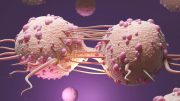
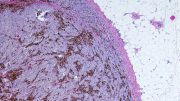
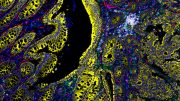
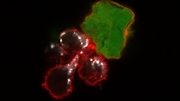
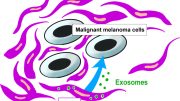

Be the first to comment on "Scientists Reveal How Incurable Skin Cancer Resists Treatment"